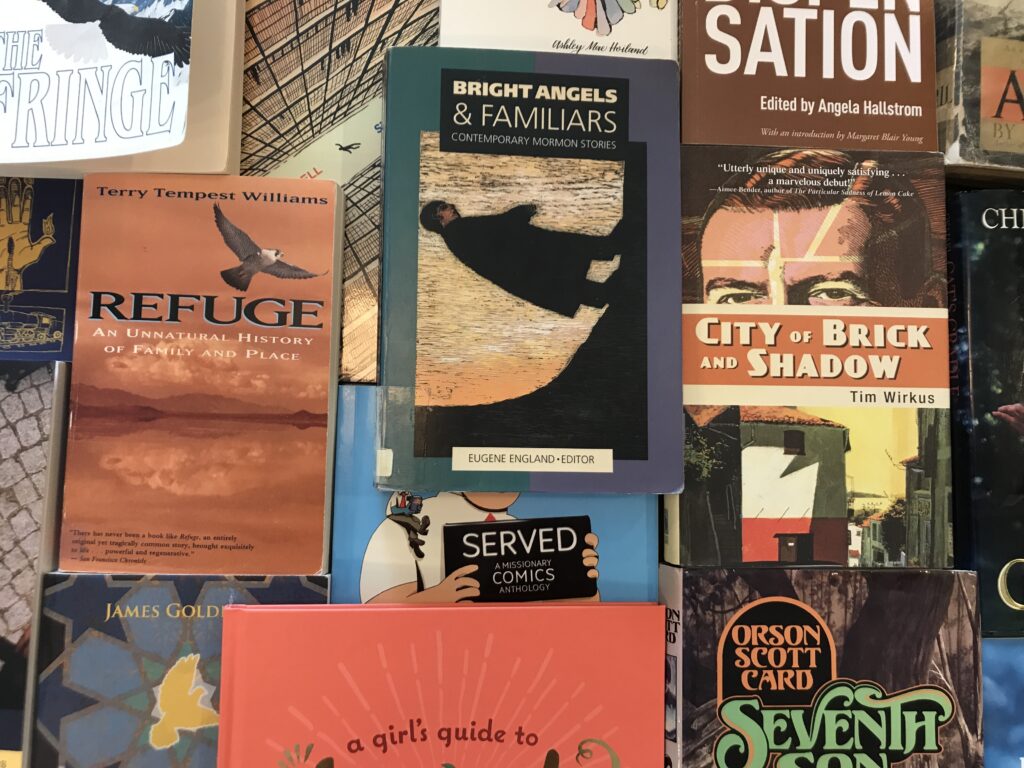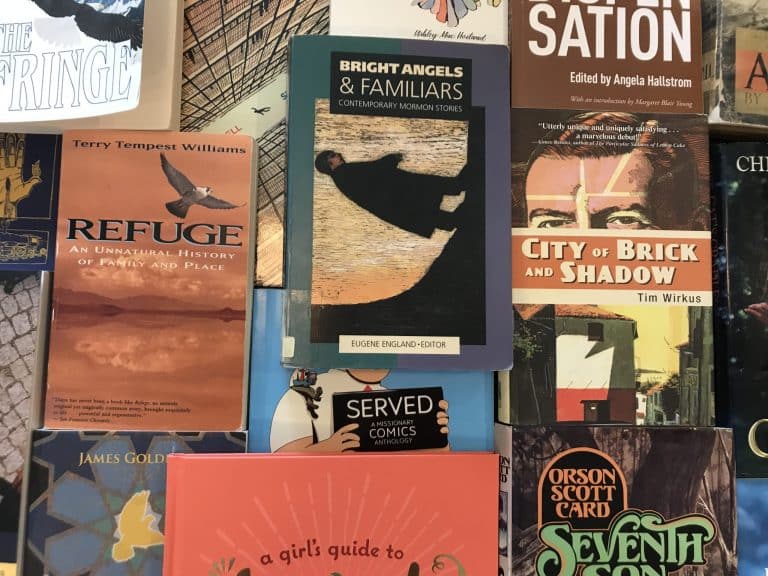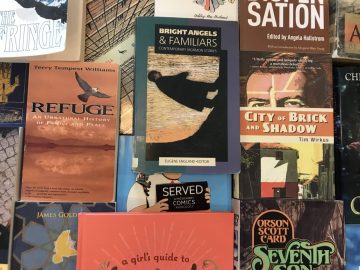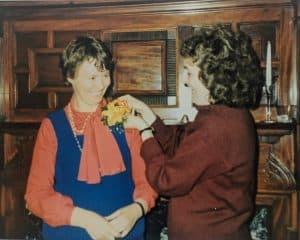Guest post by Rachel Helps. Rachel Helps is the Wikipedian-in-Residence at the BYU library. She eagerly anticipates the release of a parenting videogame she is working on with her sister, Space To Grow. She often fills conversational gaps with the minutiae of her current research, which currently includes world folklore and chess.
Hi, I’m on the board for the Association for Mormon Letters. We’re compiling a list of the most recommended Mormon books. We are accepting nominations through this Google form. We want to make sure women are well-represented in this list, and we also want to include genres that might typically be overlooked, like children’s books and romance novels.

There have been past attempts to create lists of Mormon books. A 1990 Sunstone magazine article lists fifty important Mormon books . Sadly, only 10 of the books are by women (and four of those are in the “anti-Mormon” category). Of the 21 novels on The Motley Vision blog as being candidates for a Mormon canon of literature, only 5 are by women. This unequal representation isn’t explained by a lack of candidates–there are plenty of books by Mormon women from the last 130 years.
This new list gives us the opportunity to fill a gap in previous lists of Mormon books. From Eliza Snow’s poetry to Lucinda Lee Dalton’s passionate essays in the original Exponent, women have been writing since our religion’s early days. Mormon books by women authors go beyond Maurine Whipple’s The Giant Joshua and Terry Tempest Williams’s Refuge. The Exponent II blog has covered several recent works by Mormon women, including Mettie Ivie Harrison’s The Book of Abish, Rachel Hunt Steenblick’s I Gave Her a Name, and Melissa Leilani Larson’s Third Wheel. Books like those are the kind of nominations we’re looking for.
What about Arianne Cope’s The Coming of Elijah? Where are our critical picture books and romance novels? Should Twilight be on this list? Nominate them all! Even if your nomination doesn’t make it to the main list, the anonymous committee could use it to make more specialized lists, like “top ten Mormon novels with vampires” or “best Mormon nature poetry.” You can submit any book by, for, or about Mormons, although the final list will focus on books with Mormon themes.
As the Wikipedian-in-Residence at the BYU library, I’ve worked on the Wikipedia page for Mormon fiction. Since Wikipedia doesn’t allow original research, I had to limit mentions of work to those already discussed in articles on Mormon literature. The few articles about science fiction and fantasy novels by Mormon authors allowed me to cover them with some depth. However, there isn’t much academic discourse or even news articles about the kinds of novels typically for sale in Deseret Book. Please do nominate your favorite “literary” Mormon fiction, but don’t be afraid to include romance, inspirational, or speculative fiction. Fill out this form and become part of Mormon literary history!






18 Responses
I’m all for women’s representation on this list, but Twilight? No.
Has Carol Lynn Pearson passed from notice?
I love that you are working to ensure representation of women on this list! I hope lots of readers will nominate their favorite books Mormon women.
I’ve never read Twilight books and am not likely to, but . . . given the splash they’ve made in the world they are ‘significant’ . . . should be included . . .
I have to agree and say NO to “Twilight” being included on the list. The books themselves are written horribly and the main protagonist and message the series sends set a horrible precedent.
A book series about a selfish, self-absorbed, spoiled brat who has no hobbies/interests/passions/plans for her life outside of marriage and children with a creepy teenage vampire who lacks proper boundaries, yet somehow still ends up with everything she wants without having to work for any of it, without any substantial sacrifices and stakes, is not what I call prime reading material. Nor is it the message we want to send out to any young impressionable girls who will come upon this list.
JC: Amen. You said it perfectly. Many things that have made a splash in the world are not worth recommending.
Amen to that, Dot.
We need to be careful that we’re not putting Mormon female authors on this list purely because they’re Mormon and female. We need to be sure that the books going on this list actually have something valuable in and to them.
I’m not a fan of the Twilight series myself, but in all fairness, Stephenie Meyer had a capacity to connect with her audience in a way and to a degree that we very seldom see. That’s a rare skill. So I think that’s worth noting.
One might want to watch “Beauty and the Beast and Twilight How we Socially Normalize Domestic Abuse” on YouTube before placing Twilight on the list. I read Twilight after seeing a friend experience intimate partner violence and found aspects of the story and how it was handled to be troubling.
My mother called books such as Twilight “literatrasher.” So, maybe the list maker could compromise and put two categories, one of literature by female Mormon authors and one for literatrasher by female Mormon authors. I am half kidding. The Twilight series was significant in that it was popular and it accomplished starting discussions of all the things bad in the book. So, the discussions it generated were good. So, I have mixed feelings about putting it on any list of significant Mormon authored literature. Like the popular rape fantasy novels, it appeals to something that is common in a lot of women, but I think the book could be recognized and in the short blurb about it, the problematic aspect mentioned along with the popular appeal. But then, I never read it as I am not into literatrasher.
I think adding it to a list of “The Best Mormon Books” is a mistake. However, it definitely does belong on a list of “The Most Significant/Popular/Well-Known Mormon Books.” (I love that term–literatrasher!)
I would like to see more specific parameters for your project, I get an uncomfortable feeling that many will be chosen simply because they are by women and you feel a need to “balance” such list. If that is the case, then I suggest that you specify that you are making a list of Mormon literature by women. What will be the reasons for choosing those that make the list? Gender? Popularity? Historical accuracy? Quality of writing? Relationship to Mormon theology? Will there be different categories? What are they?